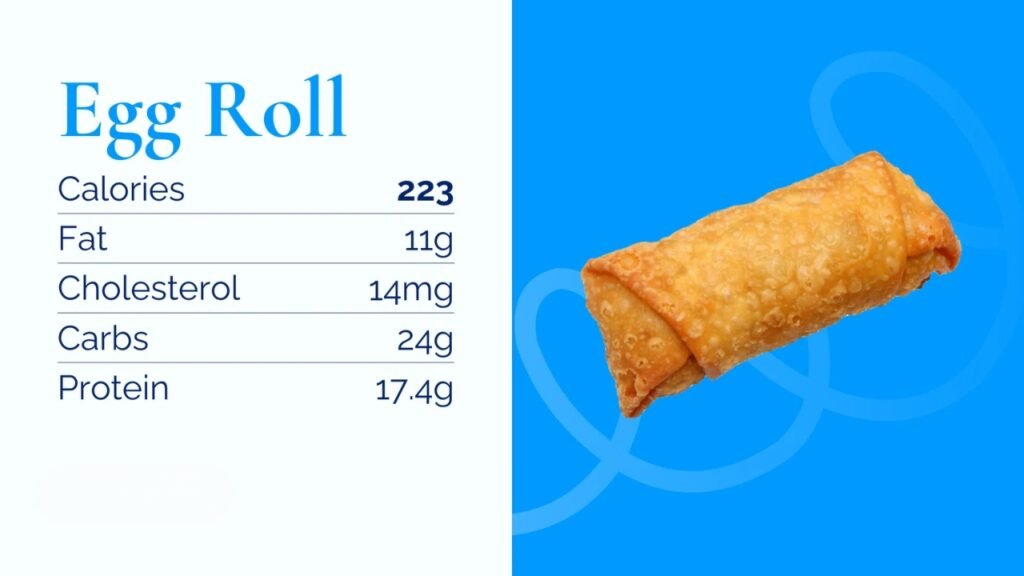Why Am I Gaining Weight in a Calorie Deficit?

Have you ever meticulously tracked your calories, diligently stayed within your deficit, and still found yourself staring back at a higher number on the scale? It’s a frustrating and disheartening experience. You’re doing everything “right,” so why am I gaining weight in a calorie deficit? It feels like the laws of thermodynamics are mocking you, and all that effort is going down the drain. Rest assured, you’re not alone. This is a common struggle, and there are many potential reasons why the scale might not be reflecting your hard work.
This blog post dives deep into the complexities of weight loss and explores the myriad factors beyond simple calorie counting that can influence your weight, from sneaky water retention to hidden metabolic slowdowns. We’ll unpack the truth behind the numbers and provide you with actionable insights to get back on track and achieve your health goals. We’ll explore the potential pitfalls of calorie counting and delve into the intricate dance between hormones, stress, and lifestyle choices. By understanding these nuances, you can troubleshoot your weight loss journey and fine-tune your approach for sustainable success.
Deciphering the Calorie Deficit: The Basics
Before we tackle the mystery of unexpected weight gain, let’s revisit the fundamental principle behind weight loss: the calorie deficit. The core idea is that to lose weight, you need to consume fewer calories than your body burns. One pound of fat roughly equates to 3,500 calories. Therefore, creating a deficit of 500 calories per day should, in theory, lead to a loss of one pound per week. This is a simplified model, however, and the human body is far more complex than a simple equation.
A calorie deficit forces your body to tap into its energy reserves, primarily stored fat, to make up the difference. This process is indeed how weight loss should work. Many factors can throw a wrench into these calculations, leading to the perplexing situation where you are consuming fewer calories, yet still gaining weight. Moreover, remember that the body’s response to a calorie deficit can vary significantly from person to person, depending on individual metabolism, activity levels, and hormonal profiles.
The Culprits Behind the Gain: Common Reasons for Weight Gain in a Calorie Deficit
There are many reasons why am I gaining weight in a calorie deficit. Let’s explore some of the most common culprits:
1. The Hidden Calorie Traps: Inaccurate Tracking
One of the biggest pitfalls of calorie counting is inaccurate tracking. It’s surprisingly easy to underestimate your intake or overestimate your expenditure. Small discrepancies can quickly add up, negating your intended deficit.
- Portion Distortion: Are you truly measuring your food accurately? Eyeballing portion sizes can be misleading. Using measuring cups, spoons, and a food scale is crucial for precision.
- Sneaky Calories: Condiments, sauces, dressings, and cooking oils can be calorie bombs. Be sure to account for every added ingredient, no matter how small it seems.
- Restaurant Realities: Restaurant meals are notoriously difficult to track accurately. Restaurants often use generous amounts of butter, oil, and sugar, which significantly increases the calorie count. Even seemingly healthy choices can be surprisingly high in calories.
- Forgotten Bites and Sips: Those “harmless” bites while cooking, taste tests, and sugary drinks can sabotage your efforts. Every calorie counts, even the ones you forget about!
- Label Lapses: Always double-check nutrition labels, as serving sizes can be deceptive. A “serving” might be much smaller than you think. Furthermore, always weigh the food yourself to confirm that the packaging is accurate.
2. Water Weight Wonders: Fluctuations and Sodium
Weight fluctuations are a normal part of being human, and a significant portion of these fluctuations is due to water retention. It’s essential to differentiate between true weight gain (an increase in body fat) and temporary water weight.
- Sodium Sensitivities: Sodium causes your body to retain water. High-sodium foods, such as processed snacks, fast food, and even some seemingly healthy options, can lead to a temporary increase in water weight.
- Carbohydrate Consumption: Carbohydrates, especially refined carbs, cause your body to store glycogen, which is stored with water. When you increase your carb intake, you’ll naturally retain more water.
- Hormonal Havoc: Women, in particular, experience hormonal fluctuations throughout their menstrual cycle, which can significantly impact water retention. These changes are normal and usually resolve on their own.
- Stress and Cortisol: Stress elevates cortisol levels, which can lead to water retention and inflammation. Manage your stress levels through exercise, meditation, or other relaxation techniques.
- Medications: Certain medications, such as corticosteroids and some antidepressants, can cause water retention as a side effect.
3. The Metabolic Maze: Adaptation and Slowdown
Your metabolism is not a static entity; it adapts to changes in your calorie intake. Prolonged calorie restriction can lead to metabolic adaptation, also known as “metabolic slowdown.” This is the body’s way of conserving energy during times of perceived famine.
- The Survival Mechanism: When you consistently restrict calories, your body may decrease its energy expenditure to compensate. This means you’ll burn fewer calories at rest and during activity.
- Muscle Mass Matters: Muscle tissue is more metabolically active than fat tissue. When you lose weight, you may lose both fat and muscle. The loss of muscle mass can lower your resting metabolic rate (RMR).
- Thyroid Troubles: A sluggish thyroid (hypothyroidism) can significantly slow down your metabolism. If you suspect you have thyroid issues, consult with your doctor for testing.
- The Reverse Diet Approach: After a period of calorie restriction, consider a “reverse diet,” gradually increasing your calorie intake to help your metabolism recover.
4. The Exercise Equation: Intensity, Consistency, and Type
Exercise plays a crucial role in weight management, but it’s important to understand how it impacts your body and your metabolism.
- New Workout Weight: Starting a new exercise regimen can sometimes lead to temporary weight gain, particularly if you’re lifting weights. This is because your muscles retain water to repair and rebuild themselves.
- Muscle Building: While building muscle is beneficial for long-term weight management, it can also lead to a slight increase in weight, as muscle is denser than fat.
- Overtraining Overload: Excessive exercise without adequate rest can elevate cortisol levels, leading to water retention and inflammation.
- Cardio Conundrum: While cardio burns calories, excessive cardio can sometimes lead to muscle loss, which can negatively impact your metabolism. A balanced approach that includes both cardio and strength training is ideal.
5. Stress and Sleep Sabotage: The Hormone Connection
Stress and lack of sleep can wreak havoc on your hormones, disrupting your weight loss efforts.
- Cortisol’s Curse: Stress elevates cortisol, which can promote fat storage, especially around the abdominal area. Moreover, chronic stress can interfere with your body’s ability to burn fat.
- Sleep Deprivation Dilemma: Insufficient sleep can disrupt hunger hormones like ghrelin and leptin, leading to increased appetite and cravings for unhealthy foods.
- Hormonal Imbalances: Other hormonal imbalances, such as polycystic ovary syndrome (PCOS) or Cushing’s syndrome, can also contribute to weight gain, even in a calorie deficit. If you suspect a hormonal issue, consult with your doctor.
6. Underlying Medical Conditions: Worth Considering
In some cases, underlying medical conditions can contribute to weight gain despite being in a calorie deficit.
- Thyroid Imbalance: Hypothyroidism, a condition where the thyroid gland doesn’t produce enough thyroid hormone, can slow down metabolism and lead to weight gain.
- Cushing’s Syndrome: This rare disorder occurs when the body is exposed to high levels of the hormone cortisol for an extended period.
- PCOS: Polycystic ovary syndrome (PCOS) is a hormonal disorder common among women of reproductive age that can cause weight gain, insulin resistance, and other metabolic issues.
- Medications: Certain medications, like antidepressants, corticosteroids, and beta-blockers, can contribute to weight gain as a side effect.
Expert Insight
“It’s crucial to remember that weight loss is not always linear,”
says Dr. Sarah Jones, a registered dietitian and certified personal trainer.
“There are so many factors that can influence the scale, from hormonal fluctuations to stress levels. It’s important to focus on sustainable lifestyle changes rather than obsessing over daily weight fluctuations.”
What Reddit Users Say: An Additional Perspective
Reddit users in weight loss communities often share their experiences and insights. A common theme is the importance of accurate tracking, as many users have discovered that they were unknowingly consuming more calories than they thought. Others emphasize the role of stress and sleep in hindering weight loss efforts. Users also frequently discuss the benefits of strength training for building muscle and boosting metabolism. Some Reddit users have found success by adjusting their macronutrient ratios, increasing protein intake, and reducing carbohydrate consumption. However, it’s important to remember that anecdotal evidence should be taken with a grain of salt, and individual results may vary. Always consult with a healthcare professional or registered dietitian for personalized advice.
Troubleshooting Your Weight Loss Journey
Now that we’ve explored the potential reasons why am I gaining weight in a calorie deficit, let’s discuss some strategies for troubleshooting your weight loss journey:
- Re-evaluate Your Calorie Needs: Recalculate your calorie needs using an online calculator or consult with a registered dietitian. Make sure you’re using an accurate estimate of your activity level.
- Track Your Food More Diligently: Use a food scale and measuring cups to ensure accurate portion sizes. Track everything you eat and drink, including condiments, sauces, and cooking oils.
- Prioritize Whole, Unprocessed Foods: Focus on consuming whole, unprocessed foods, such as fruits, vegetables, lean protein, and whole grains. These foods are generally lower in calories and higher in nutrients.
- Manage Your Stress Levels: Practice stress-reducing techniques, such as meditation, yoga, or spending time in nature.
- Prioritize Sleep: Aim for 7-9 hours of quality sleep per night.
- Incorporate Strength Training: Strength training helps build muscle mass, which can boost your metabolism and improve your body composition.
- Be Patient and Persistent: Weight loss takes time and effort. Don’t get discouraged by temporary setbacks. Stay consistent with your healthy habits, and you’ll eventually see results.
- Seek Professional Guidance: If you’re struggling to lose weight on your own, consider consulting with a registered dietitian or a certified personal trainer. They can provide personalized guidance and support.
Conclusion: Focus on the Bigger Picture
Seeing the number on the scale creep upward when you are sure you are in a calorie deficit is frustrating. The truth is, weight loss is not a perfectly linear process. Numerous factors beyond simple calorie counting can influence your weight. However, by understanding these factors and taking proactive steps to address them, you can get back on track and achieve your weight loss goals. Remember to focus on building sustainable healthy habits, such as eating whole foods, managing stress, prioritizing sleep, and incorporating regular exercise. Focus on overall health and fitness, rather than solely on the number on the scale. With patience, persistence, and a holistic approach, you can achieve a healthy and sustainable weight. Also keep in mind that why am I gaining weight in a calorie deficit is a very common question, and has many possible reasons as we’ve explored in this post.
































































































































































































































































































































































































